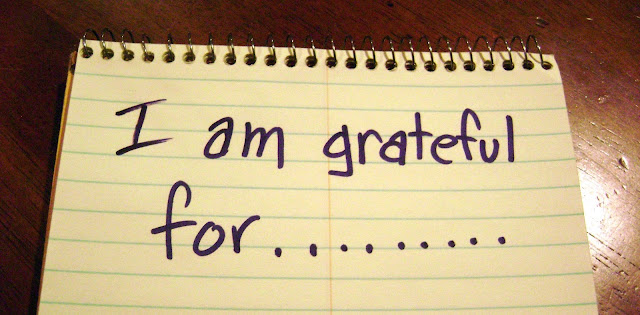Health & Wellness: The Benefits of Gratitude
Have you wanted to find a simple way to make your life better and healthier? Since there is no miracle pill on the horizon, the next best thing is to add more gratitude to your life. Gratitude has surprising benefits that improve our mental and physical health and help us to lead better lives. The trick is to practice gratitude as often as possible to have the best effect on our lives. Best part about being grateful? It’s contagious! Not only will you improve your life but you will help others to improve theirs.
Gratitude Makes Us Happier: Robert A. Emmons, Ph.D., a psychology professor at the University of California, Davis, has conducted many studies involving gratitude and well-being. His research confirms that happiness is increased and depression reduced when we make gratitude a part of our lives. Taking just 5 minutes each day to be grateful can increase your long-term well-being by 10 percent. It also reduces all of the toxic emotions like envy, regret and frustration. Get a journal and spend 5 minutes every day writing down anything for which you’re grateful.
 Gratitude Improves Our Physical Health: According to a study from 2012 that was published in the academic journal Personality and Individual Differences, people who are grateful experience fewer aches and pains and report feeling healthier than others. This really isn’t surprising. When you are feeling under the weather or down in the dumps, you aren’t likely to want to exercise or eat healthy. You may even blow off doctor appointments. If we are feeling good, we feel driven to be healthier – we exercise, eat good foods and stay up-to-date with our medical care. Gratitude also helps you sleep better. It was discovered in a 2011 study published in Applied Psychology: Health and Well-Being that writing in a gratitude journal improves sleep.
Gratitude Improves Our Physical Health: According to a study from 2012 that was published in the academic journal Personality and Individual Differences, people who are grateful experience fewer aches and pains and report feeling healthier than others. This really isn’t surprising. When you are feeling under the weather or down in the dumps, you aren’t likely to want to exercise or eat healthy. You may even blow off doctor appointments. If we are feeling good, we feel driven to be healthier – we exercise, eat good foods and stay up-to-date with our medical care. Gratitude also helps you sleep better. It was discovered in a 2011 study published in Applied Psychology: Health and Well-Being that writing in a gratitude journal improves sleep.
Gratitude Helps Us Be Mentally Stronger: Being grateful has been shown to reduce stress but did you know it also helps with PTSD? A 2006 study published in Behavior Research and Therapy found that Vietnam War veterans who had higher levels of gratitude experienced lower rates of PTSD. Gratitude can also help with overcoming trauma. A 2003 study published in the Journal of Personality and Social Psychology found that gratitude was a major contributor to resilience following the terrorist attacks on September 11th. This is because recognizing everything you have to be thankful for– even during the worst times – helps us to bounce back from the bad.
Gratitude Helps Us to Love Ourselves: Studies have shown that having gratitude leads to a reduction of social comparisons. Rather than becoming jealous or resentful of others who have more money or better jobs – which leads to lower self-esteem - you are able to appreciate other people’s accomplishments because you are satisfied and happy with your own. This means better self-esteem and love for yourself which means a happier, healthier you!
 Gratitude Helps With Kindness: People who are grateful tend to have more empathy and aren’t as likely to be aggressive. It also can have a trickle-down effect. Being sociable and polite towards others will affect their moods and behavior. We like to be around people who make us feel good. Saying “thank you” or “hello” or smiling at someone is a great way to pass along good vibes. Acknowledging others can help to create a more positive environment in your community and beyond.
Gratitude Helps With Kindness: People who are grateful tend to have more empathy and aren’t as likely to be aggressive. It also can have a trickle-down effect. Being sociable and polite towards others will affect their moods and behavior. We like to be around people who make us feel good. Saying “thank you” or “hello” or smiling at someone is a great way to pass along good vibes. Acknowledging others can help to create a more positive environment in your community and beyond.
Take time to practice some gratitude today!



Comments
Post a Comment